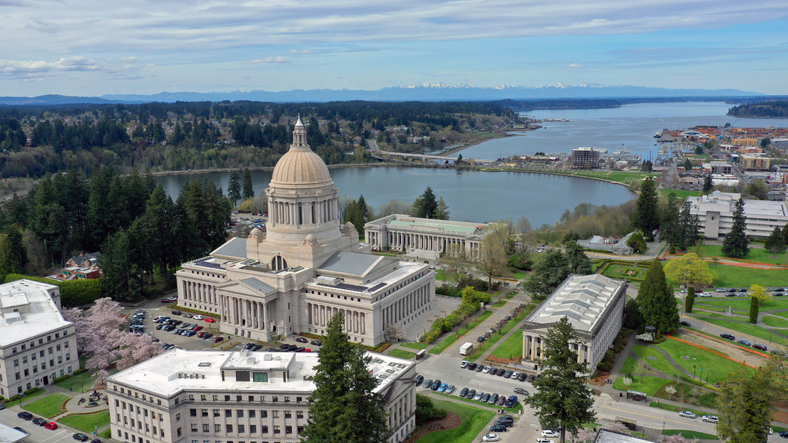Related Articles
If Washington’s skies are filled with smoke from forest fires this summer, some politicians will again blame climate change. Many of those same politicians, however, are missing an opportunity to address the real cause of recent catastrophic wildfires: unhealthy, and fire-prone forests.
Despite adding about $6 billion in new policy spending, neither of the budgets proposed by House or Senate Democrats this week adds additional funding to reduce the risk of catastrophic fire in state forests.
According to the Washington State Department of Natural Resources, we face a “forest health crisis” in Eastern Washington. As DNR staff noted in 2018, “In recent decades, landscapes across Washington State have experienced sharp increases in catastrophic loss of timber, wildlife habitat, and ecological functions due to large wildfires, insects, and disease.”
 The evidence of that continuing trend is evident in the poor air quality we have experienced in recent years. In August 2021, smoke from forest fires cause air quality in much of Eastern Washington to reach levels considered “Very Unhealthy” and “Hazardous” by the EPA.
The evidence of that continuing trend is evident in the poor air quality we have experienced in recent years. In August 2021, smoke from forest fires cause air quality in much of Eastern Washington to reach levels considered “Very Unhealthy” and “Hazardous” by the EPA.
There is broad, scientific agreement on how to address that problem. We should thin and harvest unhealthy forests to return them to a more fire-resistant condition. As Agriculture Secretary Tom Vilsack put it last year, we need to “significantly increase the level of management on our forests.”
The legislature added funding in last year’s budget to address forest health problems. The scale of the problem, however, is enormous. Legislators have promised to provide half a billion dollars over the course of eight years for forest health treatments. Rather than use the cash on hand to accelerate or add to that work, legislators chose to spend the money elsewhere, leaving only promises of future spending.
It is unlikely that using some of the additional taxpayer revenue to address forest health problems would have reduced the risk of catastrophic fire this summer. It is a problem that will take decades to fix. But the sooner we take action, the sooner we can return to summers without smoke.




